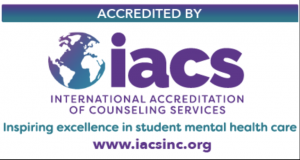Our Mission, Statements on Confidentiality, Diversity, & Electronic Communication
Our Mission
The mission of the Center for Counseling and Student Development (CCSD) is to Serve and empower all students by providing counseling, prevention, education and crisis services in a welcoming environment.
Our Vision
The vision of the Center for Counseling and Student Development is to be a student-driven leader in collegiate mental health and well-being through evidence-based services, innovation and campus partnerships.
We, at the Center for Counseling and Student Development, strive to create and promote awareness of the unique and ever-changing mental health challenges faced by East Carolina University students who are uniquely individual. We work actively to facilitate healing in our lives and in the lives of those we serve and train.
Our service and training missions, as well as our work ethic, exemplify our commitment to treat all members of the ECU community as valued and respected individuals. The Center’s policies, procedures, activities, relationships, and interactions with individuals and groups in the campus community reflect these values. Additionally, we challenge ourselves, students, and the ECU community alike to develop qualities of adaptability, flexibility, and versatility so that we may all learn to effectively work together.
Confidentiality Statement
We have the primary obligation to respect the confidentiality of any information obtained from you in the course of your work with your counselor. Therefore, anything you tell your counselor in confidence will remain confidential, except in rare circumstances. For example, if you revealed to your counselor that you were planning to hurt yourself or someone else or if you told your counselor about child abuse or elder abuse which is currently occurring, they would need to break confidentiality to protect the people who might be harmed. The only other limit to confidentiality is if a record were to be subpoenaed by a court of law. Otherwise, information shared by you is revealed only with your explicit consent and only to the person(s) or agency to whom you have consented to have such information revealed. If you have any questions or concerns about confidentiality, please discuss them with your counselor.
Electronic Communication Statement
Per the International Association of Counseling Services (IACS) Standard III.K.2.:
Electronic mail (e-mail) is not a safe means to transmit confidential information. When e-mail is used to correspond with a client or transmit information, informed consent regarding potential limits to confidentiality must be communicated which explain the inherent risks to confidentiality posed by this technology, and the limitations it also imposes on the center’s ability to respond in a timely manner to emergency situations.
CCSD staff will not utilize electronic mail or social media (including but not limited to Facebook and Twitter) to communicate with clients regarding clinical issues. Electronic mail can be used to communicate with students regarding scheduling or basic case management issues if a student has signed the Electronic Communication Policy and Consent Form. Situations in which a clinician would like to use email to communicate with a client regarding clinical issues should be approved by the Leadership team and have specific consent that meets IACS Standard III.K.2 clearly documented in the client’s chart.

